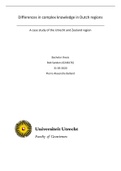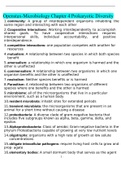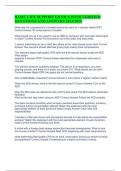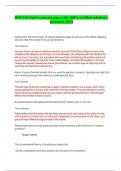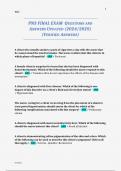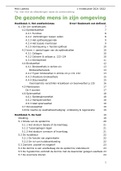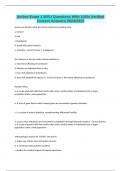Scriptie
Bachelor thesis/scriptie Sociale Geografie en Planologie (cijfer: 8)
- Vak
- Bachelorscriptie
- Instelling
- Universiteit Utrecht (UU)
Abstract This paper shows differences in complex knowledge of Dutch provinces and in particular the provinces Utrecht and Zeeland. Quantitative and qualitative data shows high levels of complex knowledge in the Utrecht province and low levels of complex knowledge in the Zeeland province. Clear mec...
[Meer zien]
